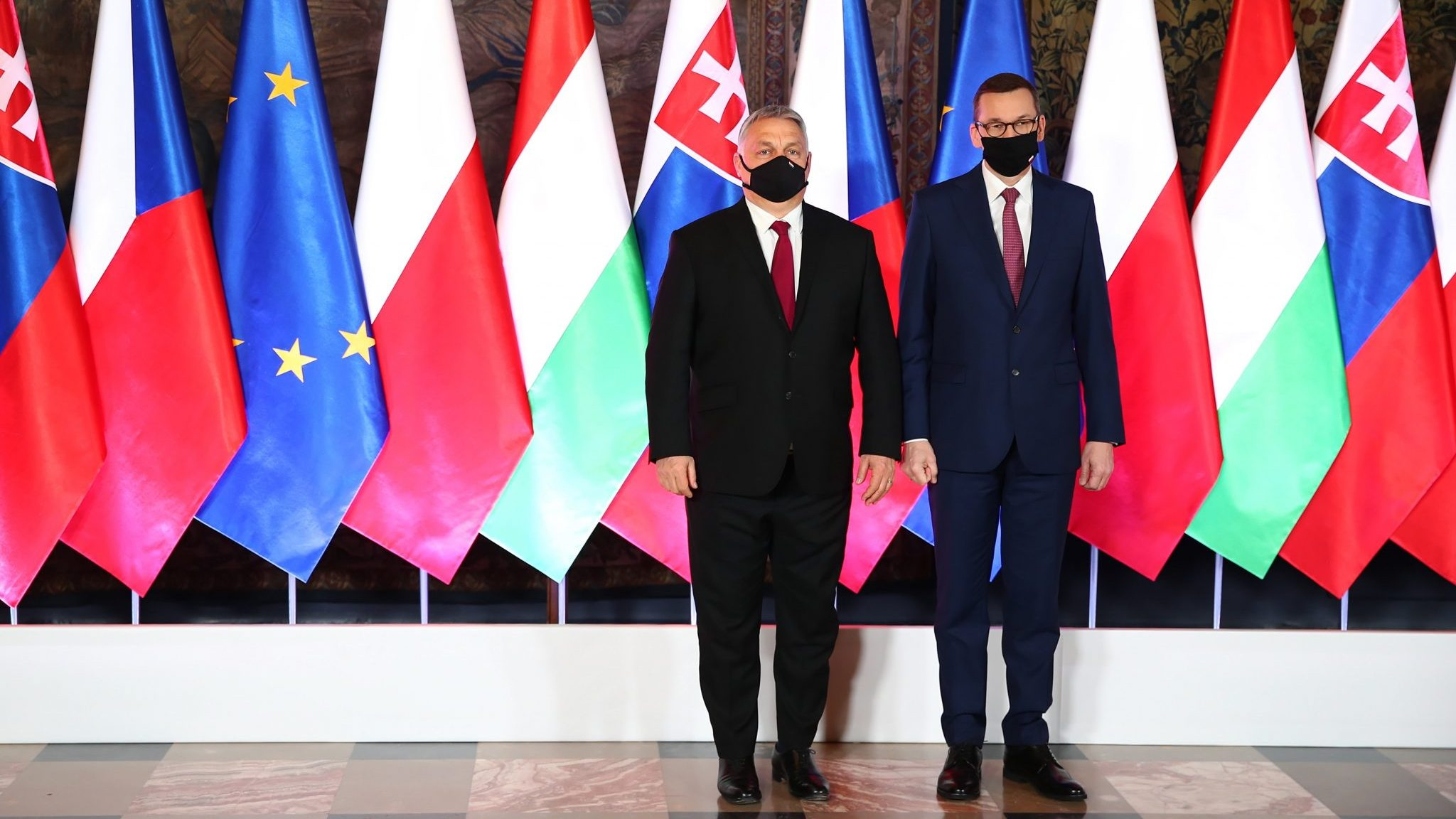A new report by US-based democracy watchdog Freedom House argues the two countries “stand out for their unparalleled democratic deterioration over the past decade”.
The countries of Central and Southeast Europe are continuing to witness declines in democracy, media and election freedom, and respect for human rights, according to the latest Freedom House Nations in Transit report, published on Wednesday.
The report covers 29 countries in Central and Eastern Europe, the Balkans and the former Communist bloc, classifying them into five categories: consolidated democracies, semi-consolidated democracies, transitional or hybrid regimes, semi-consolidated authoritarian regimes, and consolidated authoritarian regimes.
According to the report, Poland and Hungary “stand out for their unparalleled democratic deterioration over the past decade”.
“Hungary has undergone the biggest decline ever measured in Nations in Transit, plummeting through two categorical boundaries to become a Transitional/Hybrid Regime last year,” the report said.
“Poland is still categorized as a Semiconsolidated Democracy, but its decline over the past five years has been steeper than that of Hungary,” it added.
The report noted that ruling parties in Budapest and Warsaw recently “have moved from attacking the liberal principles that underpin democracy to setting new norms themselves and openly spreading antidemocratic practices”. One example is Hungary’s model of media capture, which has been openly embraced by like-minded governments in the region.
The report highlighted that this anti-democratic learning process is most visible in Poland, “where last year the government used a state-owned energy giant to acquire four-fifths of the country’s regional media outlets and announced plans to impose an advertising tax, which would strip an already ailing private media sector of vital resources”.
“Both of these steps were essentially torn from the playbook of Fidesz, Hungary’s ruling party,” report said.
Freedom House noted that “a success story is especially needed in the Balkans, where democratic gains have been rolled back in most countries”.
“In Serbia, President Aleksandar Vucic and his Serbian Progressive Party (SNS) have overseen the mainstreaming of smear campaigns and pro-government propaganda, which contributed to the SNS’s sweeping election victory and the formation of a non-representative parliament in 2020,” the report said.
“In Slovenia, Prime Minister Janez Jansa – who had benefitted from Hungarian investment in the Slovenian media industry— has elevated verbal attacks on journalists to a new level,” it said.
In Moldova, the election of Maia Sandu as president in late 2020 raised hopes for change, but her attempts to overcome hostility in the parliament in 2021 have led to protracted political and inter-institutional struggle, which could further weaken democratic safeguards. And in North Macedonia, Prime Minister Zoran Zaev’s centre-left government has repaired some of the institutional damage wrought by his right-wing populist predecessor, and still has a chance to deliver the benefits of democracy, it said.
“While important transfers of power took place in Montenegro in 2020 and Kosovo in 2021, it is still unclear whether they will lead to an improvement in democratic institutions,” report said.
When it comes to elections, the report noted that, “there is no magic formula, then, for voting out the parties responsible for a country’s hybrid status” and that “anticorruption politics can easily contain illiberal or other antidemocratic features”.
It noted that, “negative qualities make it hard to celebrate the opposition’s triumph in Banja Luka or Montenegro unreservedly, as the new mayor of the former and the new government of the latter have espoused ethnonationalist, exclusionary views”.
“While the victorious Vetevendosje party in Kosovo represents a genuine break from the status quo, its qualified support for unification with Albania could unsettle the wider region,” report said.
In the area of press freedom, Freedom House said that the effects of the COVID-19 pandemic has narrowed the space for independent reporting, “with media outlets finding themselves cash-strapped and consequently more vulnerable to political control”.
“The Romanian government used the pandemic as cover to distribute €40 million to media outlets in a manner that strengthened clientelistic networks instead of outlets in need,” the report said.
Nations in Transit 2021 found frequent instances of politicians instrumentalising dangerous rhetoric for political gain, such as Bulgaria’s nationalist reasoning for blocking North Macedonia’s EU accession negotiations.
 Eurasia Press & News
Eurasia Press & News




